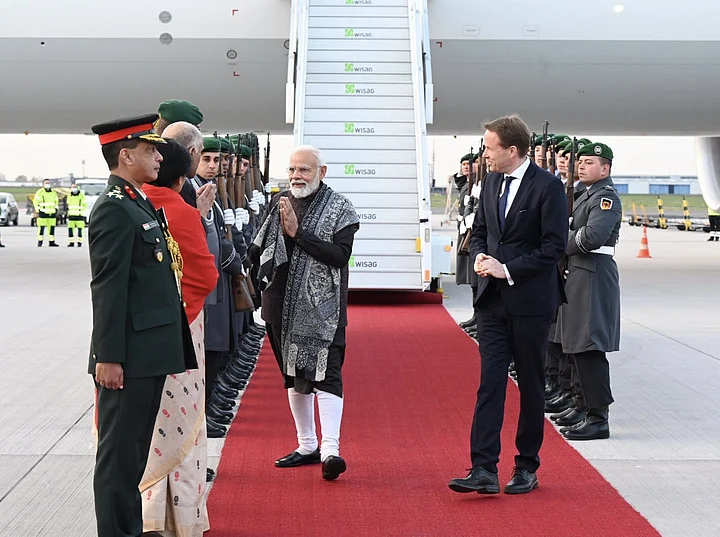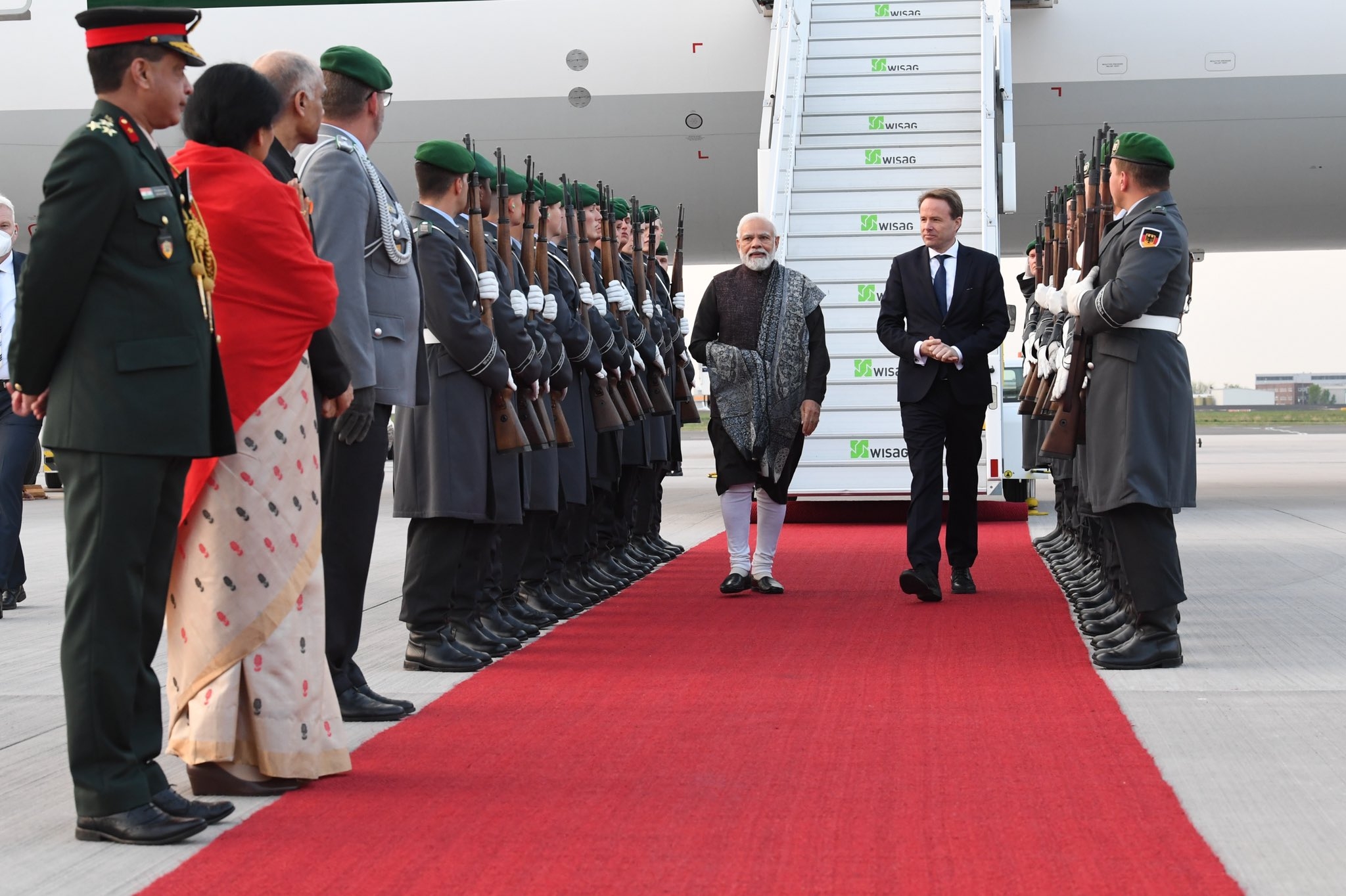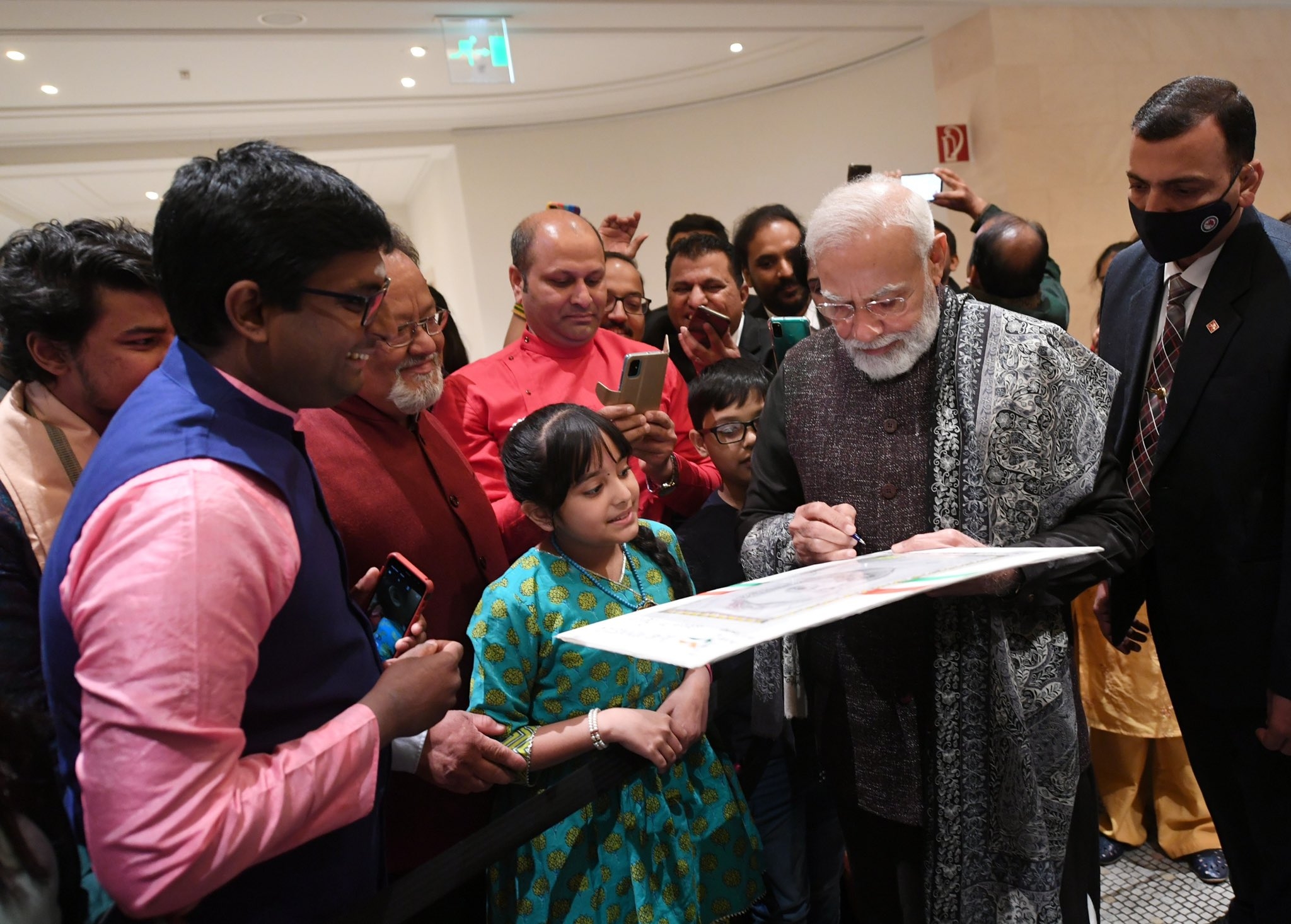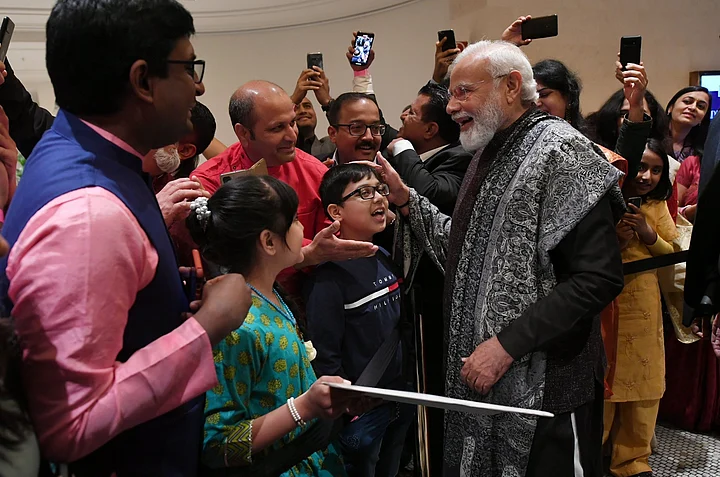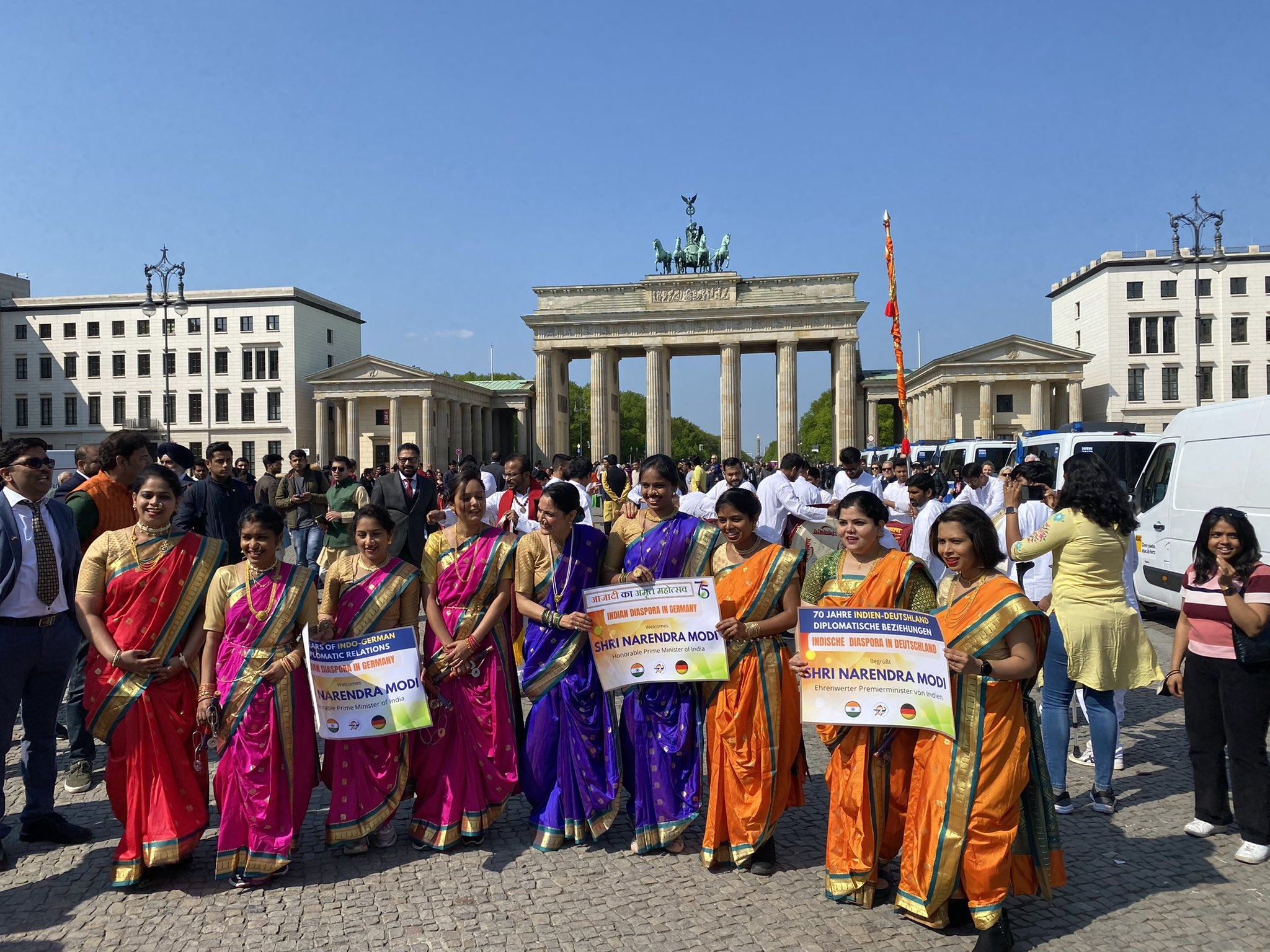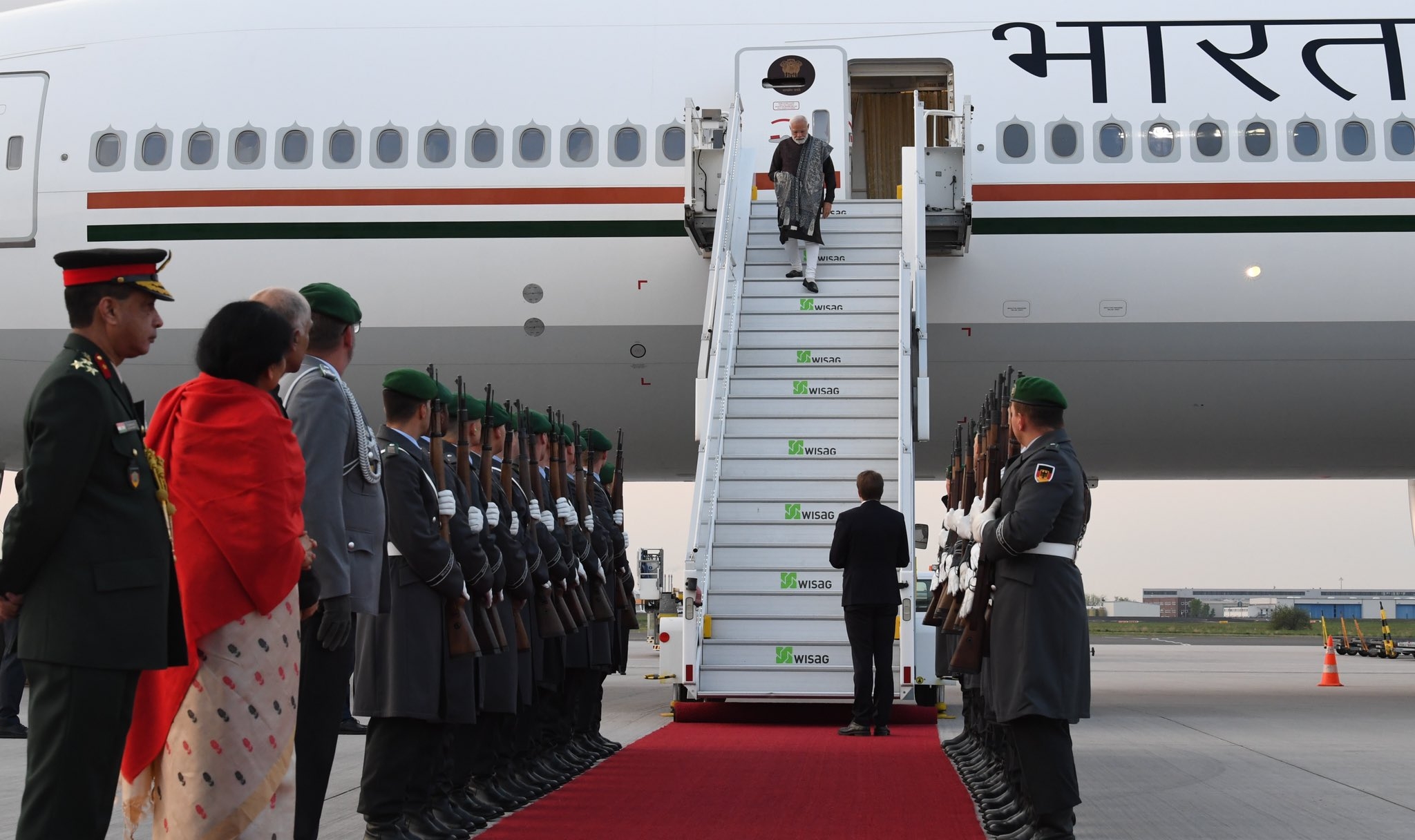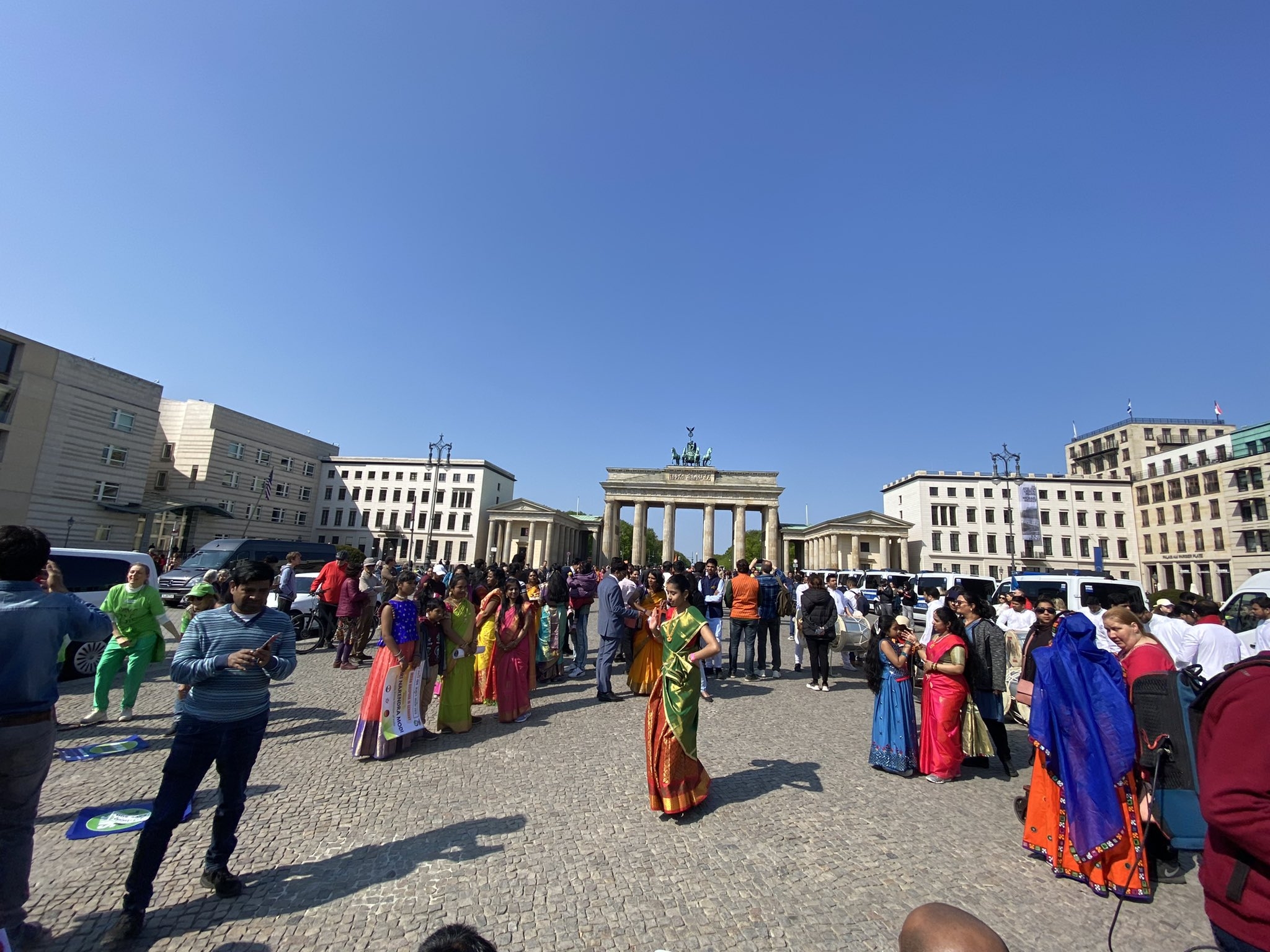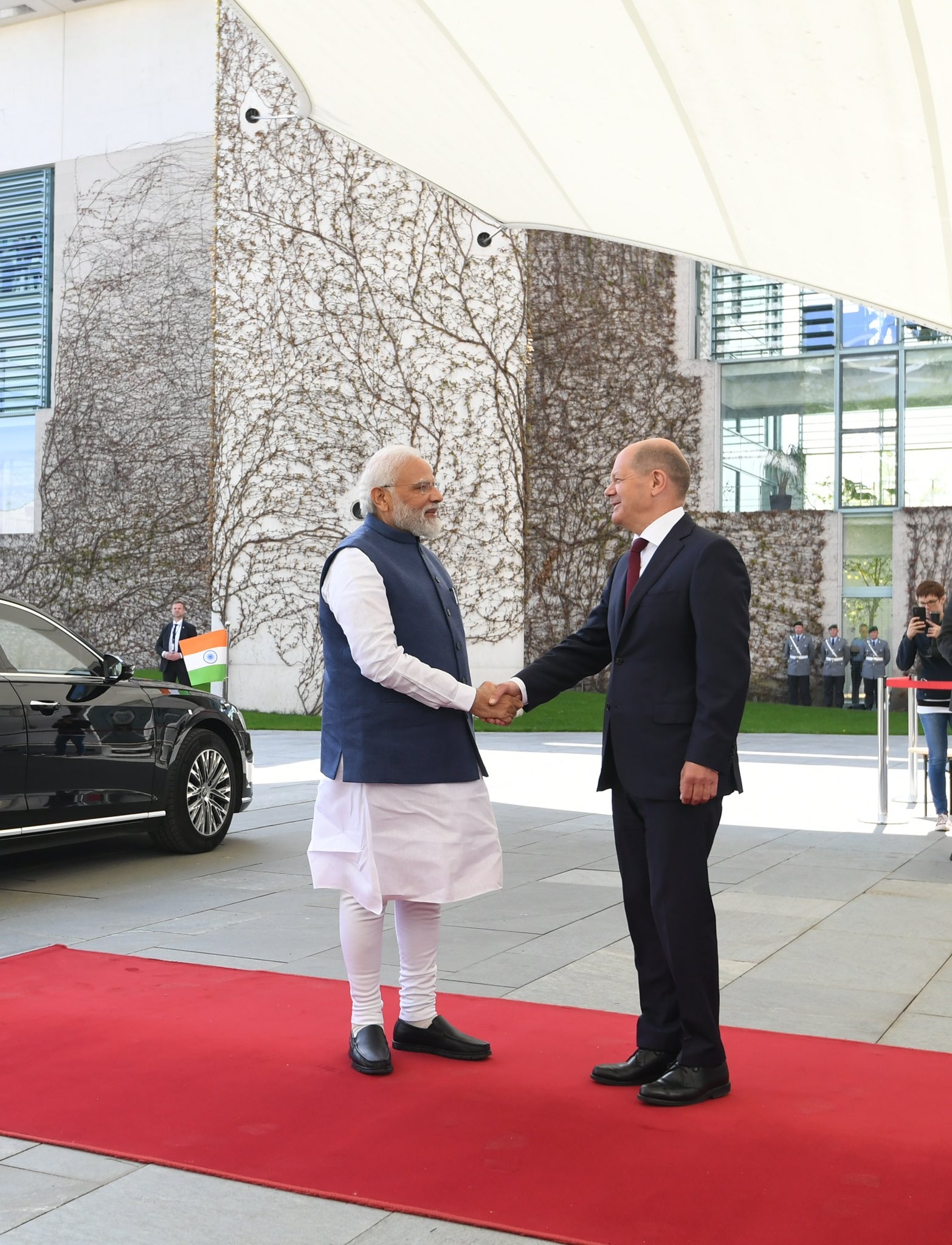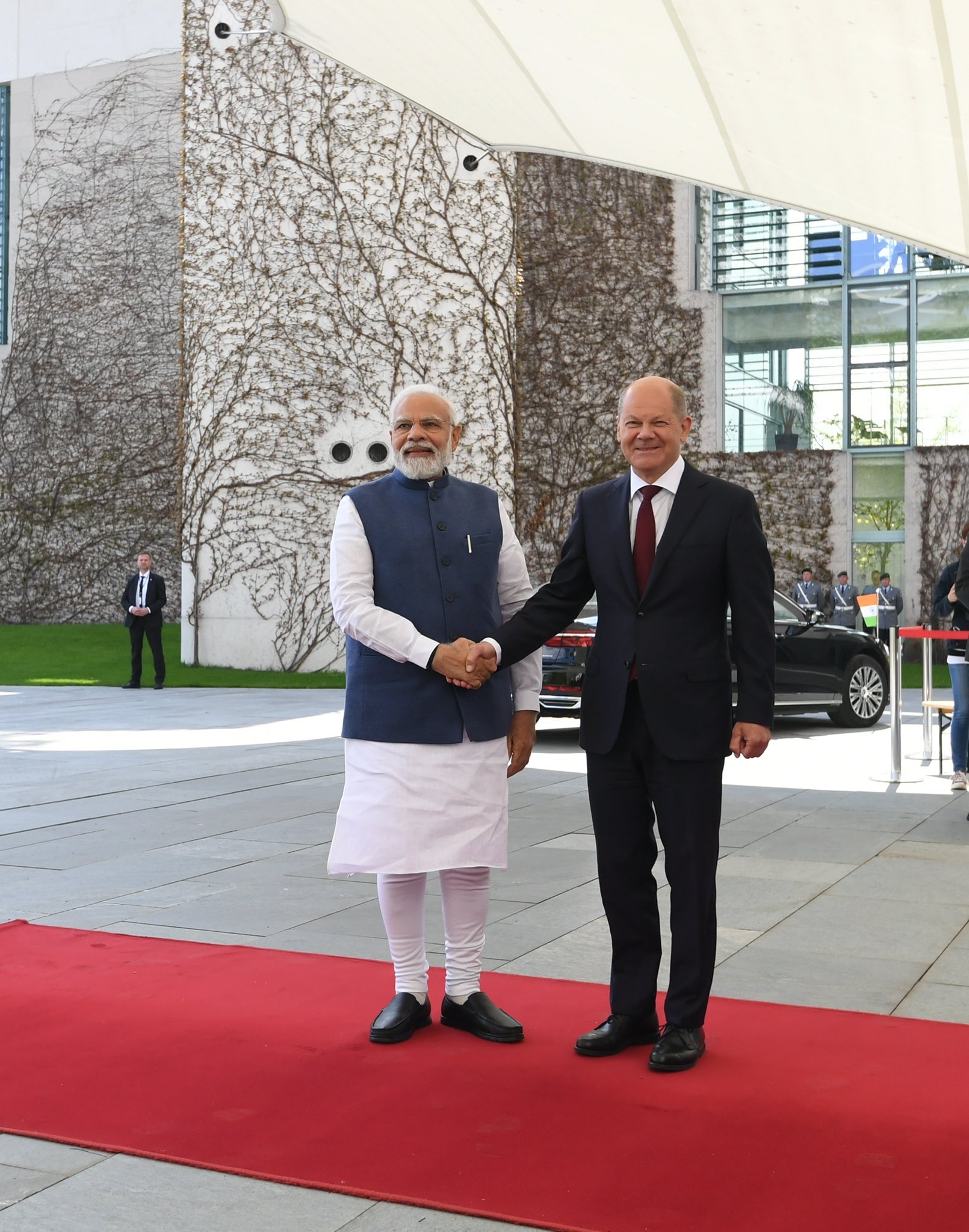Prime Minister (PM) Narendra Modi, on Monday, 2 May, said the people of India ended the politically unstable atmosphere of the last three decades by pressing a button in 2014.
PM Modi, who is on a three-nation visit to Germany, Denmark, and France, reached Berlin on Monday morning.
"After 30 years a full majority government was elected in 2014 and the people of India made the government stronger in 2019," PM Modi said while addressing the Indian diaspora in Berlin.
"After independence, the country decided a path, a direction. But the numerous changes that should have taken place with time, the speed with which it should have been done, the extensive manner in which it should have been done, we lagged behind due to one or the other reason," he added.
"Foreign rule had stomped on the self-confidence of Indians year after year, there was only one way to compensate for it - pump up self-confidence and pride in every citizen of India once again. For this, it was essential to have faith in the government."
PM Modi said that due to the traditions of the British, there was a wide gap of trust between the government and the people.
"There were clouds of doubt as there was an absence of speed needed to change what was seen during British rule. It was the demand of time that the presence of government go down in the life of common people."
He also said there is a need of "Minimum government, maximum governance!"
"There should not be the absence of government wherever it is needed but it should also not be wherever it is not needed."
Criticises Previous Governments
He also used the platform to criticise the previous governments.
"Before 2014, wherever you used to see, everything would be a work in progress. I'm not criticising anyone but if a road was made, then it would be dug up for electricity, then for water. To end this, we've made PM Gati Shakti master plan to bring all stakeholders to one platform," he said.
"Earlier there was one nation but two constitutions. It took seven decades to implement one nation and one constitution. It has been implemented only now," he said.
"New India doesn't think of a secure future alone. It takes risks, it innovates, it incubates. I remember that around 2014, our country had only 200-400 startups. Today, the country has more than 68,000 startups," he added.
Talking about the internet data prices, he said, "The price of Internet data is so low in India that it is unbelievable for many nations. Last year, India's share was 40% in Real-time global digital payments. Now no PM will have to say that I send Re 1 from Delhi but only 15 paise reaches."
No Victors in Russia-Ukraine War, India Supports Peace: PM Modi
Earlier, PM Modi said there would be no winning party in the ongoing Ukraine-Russia war as everyone would suffer, adding that India has always been in favour of peace.
"From the very beginning of the Ukrainian crisis, we called for an immediate ceasefire and insisted that dialogue was the only way to resolve the dispute. We believe that there will be no winning party in this war, everyone will suffer, so we are in favour of peace," Modi told reporters after talks with German Chancellor Olaf Scholz in Berlin, noting that the prices of oil were skyrocketing.
India a "Very Important Partner" of Germany: German Chancellor Scholz
Scholz and Modi participated in the sixth edition of the India-Germany Inter-Governmental Consultations at the Federal Chancellery in Berlin.
The German Chancellor called India a "very important partner" of Germany. After the talks, Scholz also invited PM Modi to Germany for the G7 Summit in June.
Stating that India is a "very important partner" of Germany, the chancellor said, "To me, it's a sign of the special quality of our relationship... I invited you as our guest to the G7 Summit end of June, and we look forward to welcoming you back to Germany."
"India is a super partner for Germany in Asia in economic terms, security policy terms, and climate-political terms," Scholz said, speaking at a joint conference with Modi.
'India, Germany Share Many Common Interests': Modi
PM Modi, on the other hand, said at the joint press conference that it was notable that his first foreign visit of the year was to Germany, and that his first telephonic conversation with any foreign leader has been with Scholz.
"As democracies, India and Germany share many common values. Based on these shared values and common interests, our bilateral relations have made remarkable progress over the years," he stated.
The two leaders signed the green and sustainable energy partnership after the delegation-level talks. "This Partnership envisages a whole-of-government approach to India-Germany cooperation on SDGs and climate action, under which Germany has agreed to make an advance commitment of 10 billion euros of new and additional development assistance until 2030," as per the MEA.
Olaf said that India had an important role to play in discussions on climate change.
Earlier, PM Modi held discussions with Chancellor Scholz at the Federal Chancellery, reviewing bilateral ties between the two countries, including giving an impetus to trade as well as cultural linkages.
"Prime Minister Shri Narendra Modi held a bilateral meeting today with H.E. Mr Olaf Scholz, Chancellor of the Federal Republic of Germany. The meeting was held prior to the sixth round of Biennial Inter Governmental Consultations (IGC) between India and Germany... Discussions covered key areas of bilateral cooperation under the overall strategic partnership, as well as regional and global developments," said a press release by the Ministry of External Affairs.
Earlier, PM Modi was also presented with a guard of honour. The prime minister had arrived in Germany on Monday morning, with Berlin being his first stop.
PM Modi Receives Rousing Welcome From Indian Diaspora
On reaching Germany, the PM received a rousing welcome from the Indian diaspora in Berlin.
"It was early morning in Berlin yet several people from the Indian community came by. Was wonderful connecting with them. India is proud of the accomplishments of our diaspora," the PM wrote on Twitter.
He also visited the Brandenburg Gate where he witnessed "a flavour of India," with a music and dance performance by members of the Indian diaspora.
"The colours and diversity of India are on display at Berlin’s iconic Brandenburg Gate," tweeted PMO India, along with photos from the PM's visit.
Ministry of External Affairs spokesperson Arindam Bagchi said in a tweet that Modi's visit would reinvigorate the India-Germany Strategic Partnership, advance their wide-ranging cooperation, and enhance multilateral coordination.
PM Modi's Departure Statement
Before leaving for his three-day visit to the three European countries, Modi in a statement said that his visit to Berlin would be an opportunity to hold detailed bilateral discussions with Chancellor Scholz, whom he met at G20 last year in his previous capacity as vice-chancellor and finance minister.
"We will co-chair the 6th India-Germany Inter-Governmental Consultations (IGC), a unique biennial format which India conducts only with Germany. Several Indian ministers will also travel to Germany and hold consultations with their German counterparts," the statement read.
"The IGC has an early engagement with the new government in Germany, within six months of its formation, which will be helpful to identify our priorities for the medium and long term," he added.
(At The Quint, we question everything. Play an active role in shaping our journalism by becoming a member today.)
